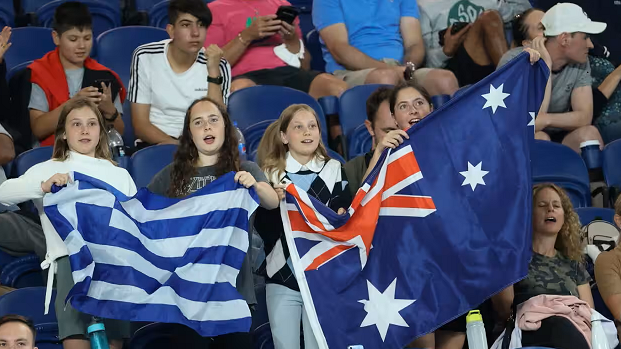By Anastasios M. Tamis*
In the previous article, I referred to the psychological causes that shape the individual predisposition towards the preservation of the cultural identity of Hellenism and the role of the mother, but also the responsibility of organised Hellenism. I came to the unpleasant prediction that with the current state of Hellenism, the current course and goals of this organised Hellenism (Church-Communities) will lead Hellenism to maintain a simple emotional relationship with Greece and the Greeks. Hellenism culturally will be squeezed, without substantial flesh, without a specific shape. An amorphous, disjointed, confused mass of cultural sounds and performances, without coherence, without beginning and end.
I fear that even this Orthodoxy will not have its present characteristics, this close relationship with the Greek language and its Greek traditions. It will certainly be alienated from the once “reconciled” situation that Christianity lived with “Hellas,” with the interventionist and essential teaching of the Great Fathers of Orthodoxy. Basil the Great reiterated that it is not possible to understand the meanings of Christianity without understanding Ancient Greek Literature. Christianity without “Hellas” will simply be an asymmetrical metaphysical worldview, an uncomfortable and inexplicable world-system, based simply on faith, without its functional relationship with the wisdom of our ancient ancestors.
However, all this could be reversible, or its negative aspects could be slowed down, if, along with the psychological predisposition of the individual towards the preservation of his Greek cultural physiognomy, we stood up as a global Diaspora (if of course we believe that we are homogeneous and fellow Hellenes), certain actions and functions that have a purely socio-economic character. So, let us see how we can take part as active and sensitised fellow Greeks in this common struggle for the preservation of ethno-cultural identity. What are the basic conditions that must apply for the struggle to be effective, profitable, and combat-worthy.
First: The existence of syncretism, conscious intra-community harmony, and unity of Hellenism. When it is understood to all of us that despite any ideological differences, parochial differences in the expression of tradition and customs, as well as what direction we should follow as a Diaspora, we are all carriers and heirs of a very important civilisation and therefore responsible in unity ALL for its preservation or loss. The expression of contradictions and political differences and the formation of divisions and cliques cannot occupy a significant place among us and must be put aside. Democracy as a system of government is at our roots; we gave it its meaning and values and we first applied it worldwide. Democracy means inclusive pluralism and respect for diversity and difference of opinion.
Second: “Hellas” as a way and value of life and its linguistic and cultural traditions can and should become the property of the wider society in the host countries of the Greeks of the world. Hellenism in the Diaspora could not maintain on its own the linguistic and cultural values of “Hellas” beyond the first half of our century in Australia if these values are not accepted and implemented by our non-Greek background fellow citizens. The myth of Zorba no longer has resonance. The concept of the Zorbaic Greek, the person who enjoys wine, food and dance, the carefree illegal lover who is happy with his life, is now an anachronistic image of the Greek. We live in a competitive, globalised world. It is necessary to accept and use new strategies and survival mechanisms.
We need to undertake, as I wrote again, a systematically organized CULTURAL OFFENSIVE. A cultural offensive targeting the wider Australian society, breaking the boundaries of the ageing and less effective “Paroikia.” We need to activate the new form of the Greek in Australia, namely the young people in the media, television, theatre and cinema, novelists and poets, directors of Greek origin, actors, visual artists, scientists and technocrats, composers, and people of letters. To also build a bridge of constant communication with Greece and Cyprus. There should be a constant flow of images and actions to and from Greece and Cyprus. Today the means are here in place. That is what I mean when I talk about CULTURAL OFFENSIVE.
Third: Creating relationships of need and dependence of members with the Community and the Church. Communities and the Church must formulate dependency strategies and define emergency services so that their members understand that they need the Communities and the Church; that their ability to live a better quality of life and to enjoy their families depend on them. The establishment of services in the field of education (pre-school classes and kindergartens, child-minding centers, adult language programs), social welfare services (relief missions for elderly Greeks, spiritual and psychological support, and care for children with special needs, etc.) are absolutely necessary. Through these relations, services and ties, the knowledge of Greek will be cultivated, the attraction of interested parties to the sources of Greek tradition, which are the Communities and the Church, will be encouraged, philhellenism and love for Greece and its principles will be augmented.
*Professor Anastasios M. Tamis taught at Universities in Australia and abroad, was the creator and founding director of the Dardalis Archives of the Hellenic Diaspora and is currently the President of the Australian Institute of Macedonian Studies (AIMS).


